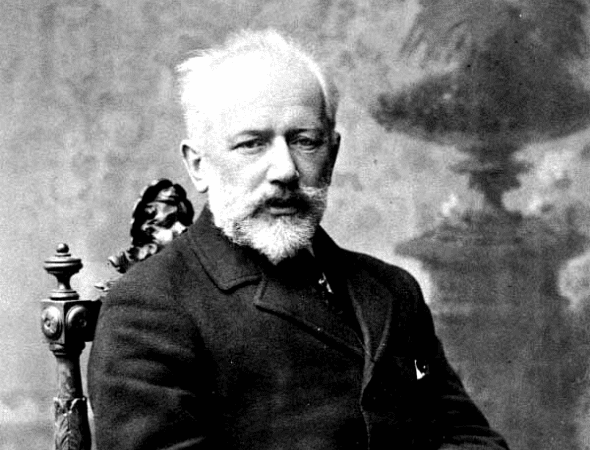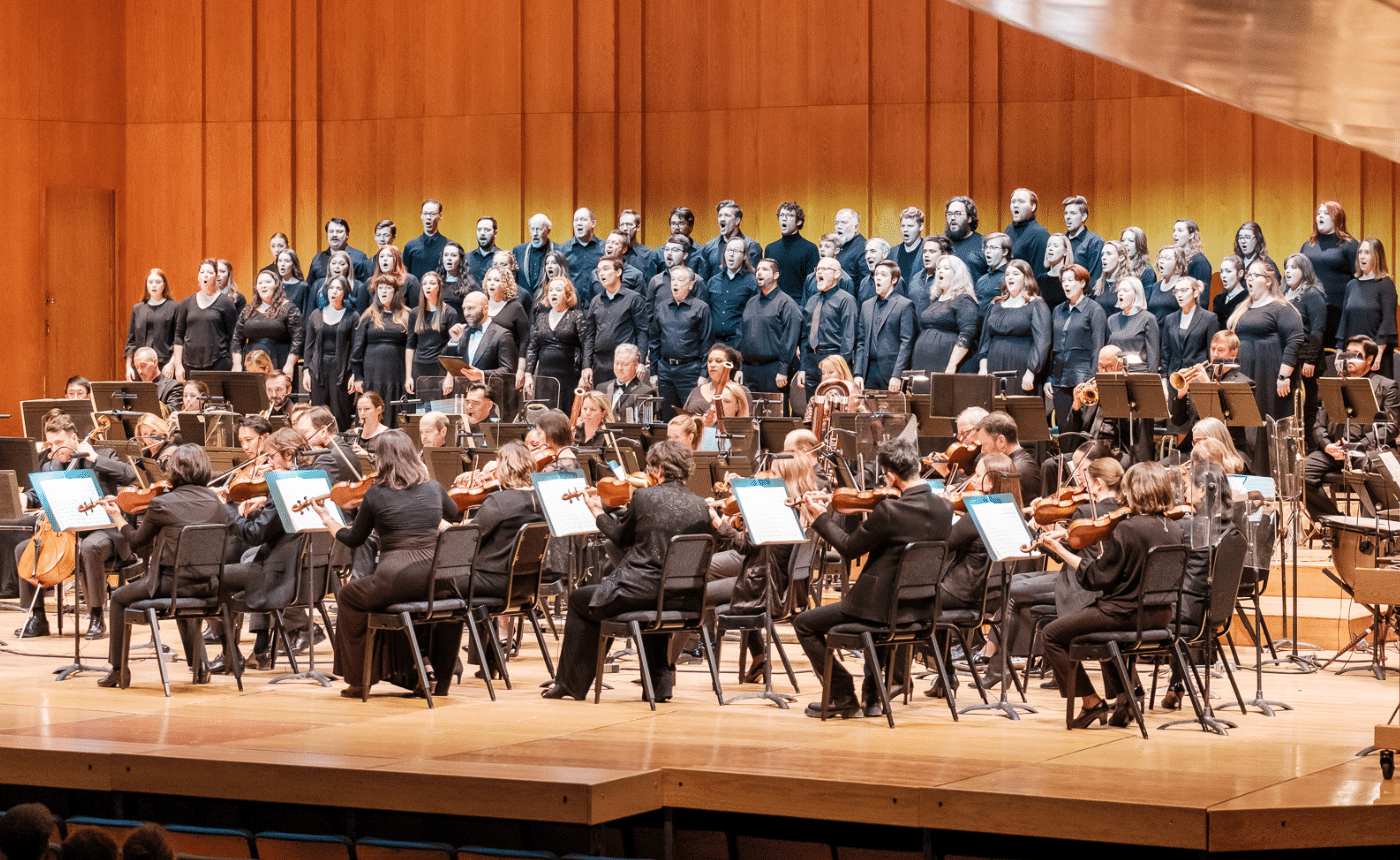TCHAIKOVSKY: Symphony No. 6 “Pathétique”
by Jeff Counts
Duration: 46 minutes in three movements.
THE COMPOSER – PIOTR ILYICH TCHAIKOVSKY (1840-1893) – Tchaikovsky’s last years were colored by the fact that he recognized them as such and his earlier preoccupation with fate had to make room for a new one—mortality. This mindset did not create the maudlin atmosphere one might have expected, especially if virtually any previous period of his life was allowed to serve as guide. Instead, much of Tchaikovsky’s late work benefited from an uncharacteristic run of good spirits. It was a time of legacy, not lethargy, and he was as sharp compositionally as he had ever been. In addition to the 6th Symphony, two operas and the unfinished 3rd Piano Concerto, this period included the ballets Sleeping Beauty and The Nutcracker.

THE MUSIC – First, a word about the subtitle. “Pathétique” in its Russian form does not mean what it does in English. Hardly “pathetic” or “pitiable,” in this context it was intended to conjure an “enthusiastic,” “passionate,” and “emotional” experience. It is also worth noting that the 4th Symphony had a specific program attached to it while the 5th did not (an admittedly nebulous fact that has not kept biographers over the years from attempting to assign one). The 6th Symphony most certainly did have a program, but unlike the 4th, it was not at all specific and therefore subject to at least as much ongoing speculation as the 5th. The fact that Tchaikovsky originally called the 6th his “Program Symphony” hasn’t helped the debate in any way, because it did not mean that he planned to share the story with the world. He envisioned it from the start as an enigma and when considering the questions of future curious listeners, he simply wrote, “let them guess.” Other than a mention that the symphony was “saturated with subjective feeling,” the specifics of the program are with him still. The only thing we know now without doubt is that he held his Symphony No. 6 in very high regard. “[It is] the most sincere of all my creations” he wrote in a letter at the time, “I love it as I have never loved any of my other musical offspring.” The structure of the “Pathétique” is unique and the juxtaposition of the third and last movements is particularly daring, even for today. The third movement is a march that builds to an incredible level of excitement and is so effective in its rousing climax that audiences, nearly without exception, still applaud luxuriously at the end of it. The ensuing finale is a patient funereal dream and fittingly, given Tchaikovsky’s matter-of-fact view of death and the beyond, it simply disappears into itself without comment or conclusion.
THE WORLD – Elsewhere in 1893, Sir Arthur Conan Doyle published The Final Problem (the story that ends with the death of Sherlock Holmes) and New Zealand became the world’s first self-governing nation to give women the right to vote in parliamentary elections.
THE CONNECTION – Tchaikovsky 6 has not been programmed by the Utah Symphony on the Masterworks Series since 2019. Thierry Fischer conducted.











